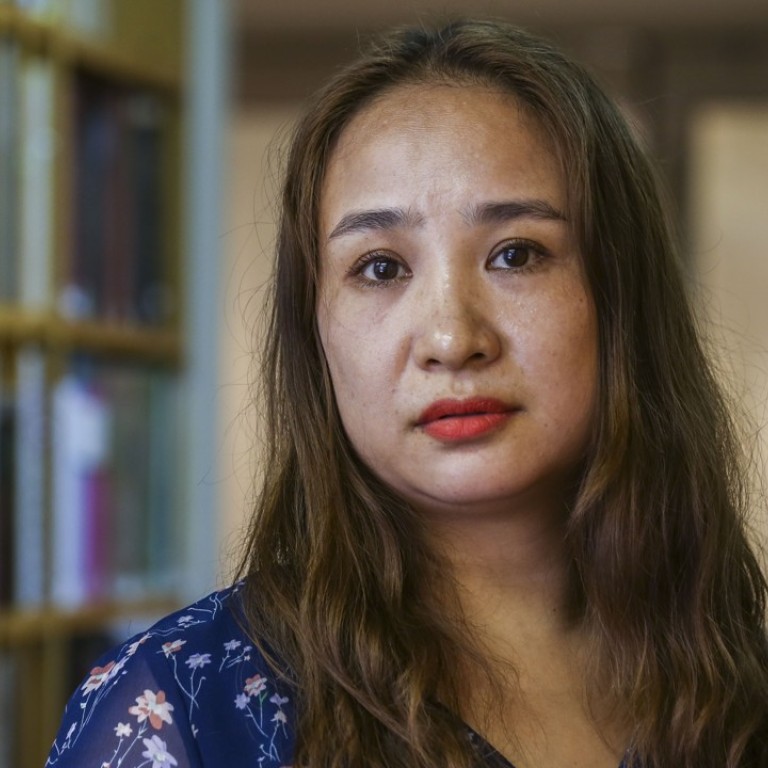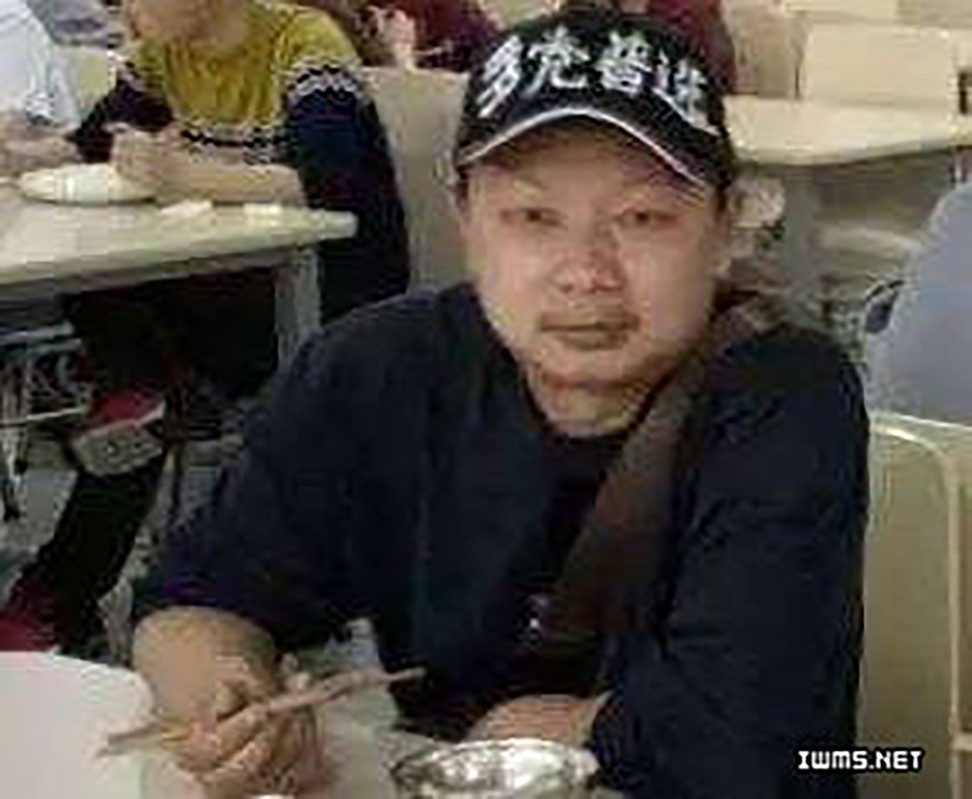
Wife of Chinese activist locked up over June 4 liquor labels on a mission to ensure he is not forgotten
Graphic designer Luo Fuyu, 45, and three friends were rounded up in Chengdu, Sichuan province, and charged with ‘inciting subversion of the state’
Chengdu nail salon owner Gao Yan has not seen her husband in more than two years, and she does not want the world to forget him.
Graphic designer Luo Fuyu, 45, has been languishing behind bars in China for helping to produce a liquor bottle label recalling the bloody military crackdown on pro-democracy protesters in Beijing’s Tiananmen Square on June 4, 1989.

Gao, 42, is worried for her husband because there has been no news of a trial date, and the authorities will not let her see the charge sheet or any court documents related to his case.
Mainland courts are supposed to set a trial date within three months of charging a person, according to a lawyer familiar with China’s criminal procedure law.
Luo has not been allowed to see his family in all this time.
Gao has dug into her savings to pay for a lawyer who has met Luo several times in prison in Chengdu.
Luo receives the daily necessities she sends to prison but he might not get all her letters, Gao said.
She became frantic in January when an ex-offender released from prison told her Luo had been seriously ill for several months with fever and diarrhoea and had lost weight. She learned later that her husband was recovering.
Sichuan earthquake, 10 years on: how a tragedy changed China
Gao said she felt she was “kicked around like a ball” by officials each time she asked when her husband’s trial date would be set. Fearing people would forget his plight amid censorship of any mention of June 4 on the mainland and growing surveillance of the public, she made it her mission to continue speaking up about her husband of 18 years.
Luo was not always an activist, she said. But something changed in him after a powerful earthquake ripped through Sichuan in 2008, killing nearly 70,000 and exposing inferior construction methods that caused buildings including schools to collapse, crushing their occupants.

He realised then that much of the propaganda fed to the people was not true, Gao said. Luo began befriending local activists and government critics, and would tell their teenage daughter about prominent democracy fighters such as Liu.
The image was a drawing of an iconic stand-off captured by photographers on June 4, 1989 and “8964” referred to the date.
The men stuck the label on bottles and sold the baijiu online at 89.64 yuan (US$13) for two. The charges against them said “dozens of bottles” were sold before they were caught.
All four men are in detention, with no trial dates set for any of them.
The exact death toll from the Tiananmen crackdown remains unknown. Hong Kong is the only place in China where a large-scale commemoration takes place each year with a candlelight vigil.
Gao revealed to the Post that after her husband’s arrest, she was interrogated in Chengdu by four state security agents who threatened to beat her, jail her and make her older sister jobless.
The soft-spoken woman said one of the agents called her husband a criminal and sneered at her when she asked what crime Luo had committed.

Gao said she struggled to hold herself together as she rattled off a list of possible crimes her husband might have committed, even mentioning rape.
She said the agent replied: “Not rape. A crime more serious than any of those. An extraordinarily serious crime.”
Gao, whose biggest fear is that she will never see her husband again, believes what Luo did was right.
“I know it was a bit dangerous. I don’t think he caused any big or substantial trouble. But [the state] won’t even allow people to say things,” she said.
Gao is a member of the Early Rain Reformed Church, or Qiuyu Protestant Church, in Chengdu, which has been targeted by local authorities as illegal.
Leading Chinese dissident jailed for 13 years for ‘subversion’
She said her friends and daughter know their movements are closely watched all the time.
“Even a candlelight vigil, or a birthday party, would be quickly learned of by the authorities,” Gao said. “As if everything is in their hands.”
She said that when she wanted to make a banner to protest against her husband’s ongoing detention, she went to more than a dozen print shops and asked each to produce only one Chinese character in the slogan: “No trial, no verdict for two years, families of the white liquor case suspects miss their beloved ones.”
“The shops are required to report to local police whenever customers ask them to produce certain words,” Gao said.
“Someone might have told on me if I had the whole sentence printed in one shop.”
She said her 17-year-old daughter, a dancer, had been affected too.
What I have been doing may help a little or not at all, but it may make the authorities have some scruples
Twice since Luo’s arrest the girl was dropped from her troupe just days before it was due to leave for performances overseas and in Beijing. No explanation was given.
Gao was wistful as she thought back to June 4 this year, and related how the subway station at Tianfu Square, a 88,400 square metre plaza in downtown Chengdu, was closed to prevent public gatherings on the Tiananmen anniversary.
The authorities wanted mainlanders to forget the Tiananmen incident, she said, and they were succeeding because “nowadays not many people on the mainland know about June 4”.
That has only made her more determined to keep talking about her husband. Most of all, she wants freedom and justice for Luo.
“If I just leave things alone, he might get a heavy sentence. What I have been doing may help a little or not at all, but it may make the authorities have some scruples,” she said.
“There will be no hope if I stop.”

